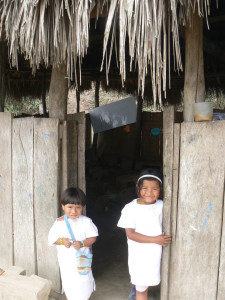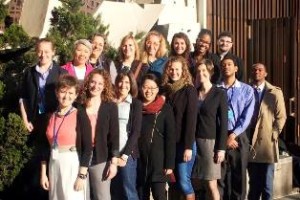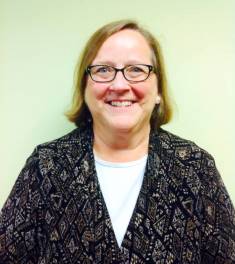When was the last time you were proud to be Christian? When was the last time you felt good about calling yourself a Lutheran?
Articles, blogs, surveys, statements, and so on keep telling us that the Church is in crisis, that mainstream denominations are bleeding members and funds, that churches are trading vitality for gimmicks to stem the flow out the doors. Too often, the public face of Christianity in the U.S. seems to be a culture of “no” – no to diverse sexualities, no to religious diversity, no to science, no, no, no. Flocks of young people, with worldviews distant from generations past, are hastening away from a religion whose presence in the news is often a portrait of stodginess, of anachronisms, or – at its worst – of simply hate in action. The pseudo-Christianity that holds sway in media portrayals of faith communities makes it difficult for many of us to identify as Christians – and as Evangelical Lutherans – with pride in our church.
But there are times when that vision of the church wafts away like the thin, untenable shell that it is. This happens a lot in the work that I am blessed to do. If I may, let me tell you about the church that I see.
Last year, I was at a summit hosted by the Alliance to End Hunger in Washington, DC. For the opening panel, I sat at a random table, a nobody among leaders and representatives of some of the most prominent anti-hunger organizations in the country. Across from me was a man representing a food bank out west. He shook my hand and thanked me. His food bank was supported by a Domestic Hunger Grant from ELCA World Hunger. Next to him was a woman representing a meal delivery program in the South. She likewise extended her gratitude; her program, too, was supported by ELCA World Hunger. To my immediate left? The father of a young woman who co-wrote a resource on food drives for us, herself “raised and retained” ELCA. Where was his daughter? On the stage, about to present to this diverse group and, unbeknownst to her, about to receive a scholarship for her anti-hunger work.
The ELCA is a member of the Alliance, but far beyond that, we are THERE in many profound ways.
I have had the chance to travel to many states and to Latin America in my work with ELCA World Hunger. And the overwhelming impression I have taken from the conversations I have had and the things I have heard has been how well-respected our Church is among ecumenical partners, local communities, and companion churches. Our commitment to accompanying our partners and companions opens up vital spaces in which we can learn and share with one another and engage in vibrant ministries in communities around the world.
While in Colombia with colleagues from the Global Mission unit of the ELCA and representatives of our companion church, the Evangelical Lutheran Church in Colombia (IELCO), we had the unique opportunity to meet with three men from Caminando Juntos (“Walking Together”), an advocacy, activism, and support group for people infected with HIV/AIDS that is part of IELCO’s ministry in Colombia. We heard stories of the group’s successes in accompanying newly diagnosed members, in helping to secure medication, and in raising awareness of HIV/AIDS throughout the church. This was the first time members of the group had met with people outside the group.
This is a ministry supported by grants from ELCA World Hunger to IELCO’s Diakonia ministry. We have been invited to be part of this work with our support, and our Church has said “YES.” And we have been enriched as Church because of it.
On that same trip, w e climbed up a mountain in northern Colombia to visit with the Christian Kogui Community, an indigenous community facing significant challenges in defending their rights to education, health care, and religious freedom. When they converted to Christianity years ago, they lost their protected status as “indigenous peoples,” which led to eviction from their traditional lands, lack of access to subsidized health care, and reduced opportunities for education. Through IELCO, ELCA World Hunger helped some of the families in this community purchase land, including farms that provide food to Kogui families.
e climbed up a mountain in northern Colombia to visit with the Christian Kogui Community, an indigenous community facing significant challenges in defending their rights to education, health care, and religious freedom. When they converted to Christianity years ago, they lost their protected status as “indigenous peoples,” which led to eviction from their traditional lands, lack of access to subsidized health care, and reduced opportunities for education. Through IELCO, ELCA World Hunger helped some of the families in this community purchase land, including farms that provide food to Kogui families.
Our support for IELCO, in part, helps to provide the Kogui community with partners in their struggle to advocate for themselves. We have been invited to be part of this work with our support and to learn from it by our presence, and our Church has said “YES.” And we have been enriched as Church because of it.
Backpack programs in Iowa, shelters for homeless youth in New York and Texas, re-entry programs for men released from prison in California, community gardens and nutritional education in Wisconsin, hospitals in the Holy Land, refugee camps in Jordan and Kenya, improved sanitation programs in Myanmar – we have been invited to be part of this work with our support and our presence, and our Church has said “YES.” And we have been enriched as Church because of it.
Our colleagues in ELCA Advocacy in Washington, DC, New York, and a variety of state public policy offices are prominent voices for justice, leading the charge on issues ranging from minimum wage and protections for workers, to care for creation, to federal safety net programs for people who fall on hard times. Whether on the international, national, or state level, Lutherans have said “YES” to being part of – and leading – conversations about justice, peace, and fairness.
We are there. It may not get written about in the papers. It may not end up on the “Today” show. It may not go viral like a hate-filled protest at a military funeral, but it does not go unnoticed. With faith in God who ordains that government should be just, that every person’s rights should be protected, the ELCA joins its voice to the symphony of cries for justice and peace. When the world says, “No” to human beings and to the environment – “No, there isn’t enough money to support people in need during an economic crisis,” “No, protecting the environment would risk too many jobs” – the Church says, “YES” – “Yes, we can support people in need,” “Yes, we can practice sustainability in ways that benefit both humans and non-human creation,” “Yes, we can and must protect the rights of children, workers, immigrants, refugees, and all those who are vulnerable.”
This is what I see…
- In a small town on Long Island, a visually impaired man whose home was ravaged by Hurricane Sandy stood with us and watched as members of ecumenical group helped rebuild his home. Lutheran Disaster Response was there, and remains there.
- In Port Ludlow, Washington, a young girl receives a backpack full of food to help ensure she will eat during the weekend, when she doesn’t have access to breakfast or lunch at school. Peace Lutheran Fellowship and ELCA World Hunger are there, and remain there.
- In Minneapolis, Minnesota, a man who is a refugee from Liberia participates in a program to help him learn skills to get a job and acclimate to American culture, ensuring he can use his gifts to support himself and his family. Daily Work and ELCA World Hunger are there, and remain there.
- In Texas, a young boy fleeing violence in Central America crosses a border after a perilous journey through Mexico and finds a safe place where he is welcomed and cared for. Lutheran Social Services of the South and the ELCA are there, and remain there, even after the boy is placed in a home and given the support he needs to grow up in a place where his gifts and talents can be nurtured.
- In Detroit, Michigan, young children learn the skills necessary to make healthy eating choices and gain skills to help improve their ability to read. Revelation Evangelical Lutheran Church and ELCA World Hunger are there, and remain there.
- In Los Angeles, California, a mother and daughter serve food to their neighbors at a community meal, while during the week they receive food themselves, to help them make it through the month. They are there, My Friend’s House is there, and ELCA World Hunger is there, and remain there.
- In River Forest, Illinois, young children learn about hunger while collecting gifts to purchase a family farm to support agricultural projects halfway around the world that will help hundreds of families feed themselves for years to come. Grace Lutheran Church (River Forest) and ELCA World Hunger are there, and remain there, even as their hearts and gifts extend to our companions continents away.
There are hundreds of these ministries supported by ELCA World Hunger and Lutheran Disaster Response, and thousands more that are supported directly by gifts from church members, community partners, and others. Any question about the power of faith to inspire people to respond to God’s invitation to be part of God’s work in the world is answered unequivocally, every day in the nearly 10,000 congregations of the ELCA and the hundreds of places around the world where people of faith work together to end hunger, walk together, and be fed – physically, spiritually, mentally, emotionally, socially.
As people of faith, we have to take seriously the criticisms levied against organized religion by its critics. We certainly have not gotten everything right, and there have been times in history when the Church has been an agent of injustice, rather than a presence of justice and hope. We move toward a future promised by God knowing that still, we will not get everything right. We are saints and sinners, after all.
But the critics of organized religion – and we ourselves – also must take seriously the multitude of ministries made possible by God’s invitation to authentic relationships and mutual ministry. These stories may not get told on the mountain – they may be whispered about in the valley – but they are there, and they are part of who we are as Church together. We have the opportunity to change the picture, to cast a vision of the ELCA and of Christianity as the community of justice and love that it is called to be. And in so many ways, our Church and the churches of our partners and companions have said “YES.”
Everyday, the ELCA, its partners, its companions, and other people of goodwill are painting a picture of a faith that is vibrant, active, authentic, meaningful, life-giving, and justice-seeking. To God’s invitation to be part of the work the Holy Spirit is doing in communities around the world, our Church has sounded a mighty “YES!” As individual people of faith, what will we say? Will we be part of the transformation of the public face of Christianity as a religion of “no” to a religion of “yes” – yes to our neighbors, yes to God’s work in the world, yes to a world in which all are fed, yes to communities of justice and equity?
“Listen, Listen God is calling,
through the Word inviting…”
Ryan P. Cumming, Ph.D., is Program Director for Hunger Education for ELCA World Hunger. He can be reached at Ryan.Cumming@ELCA.org.








